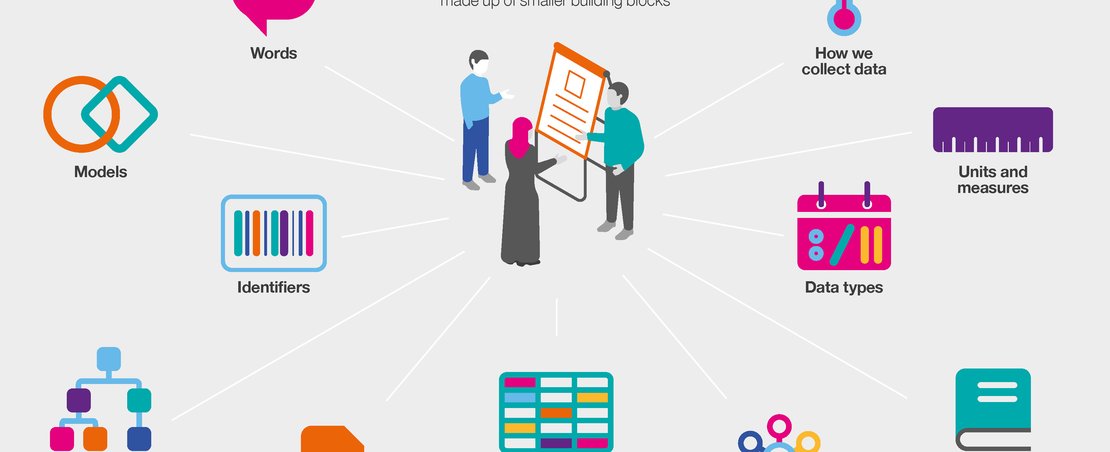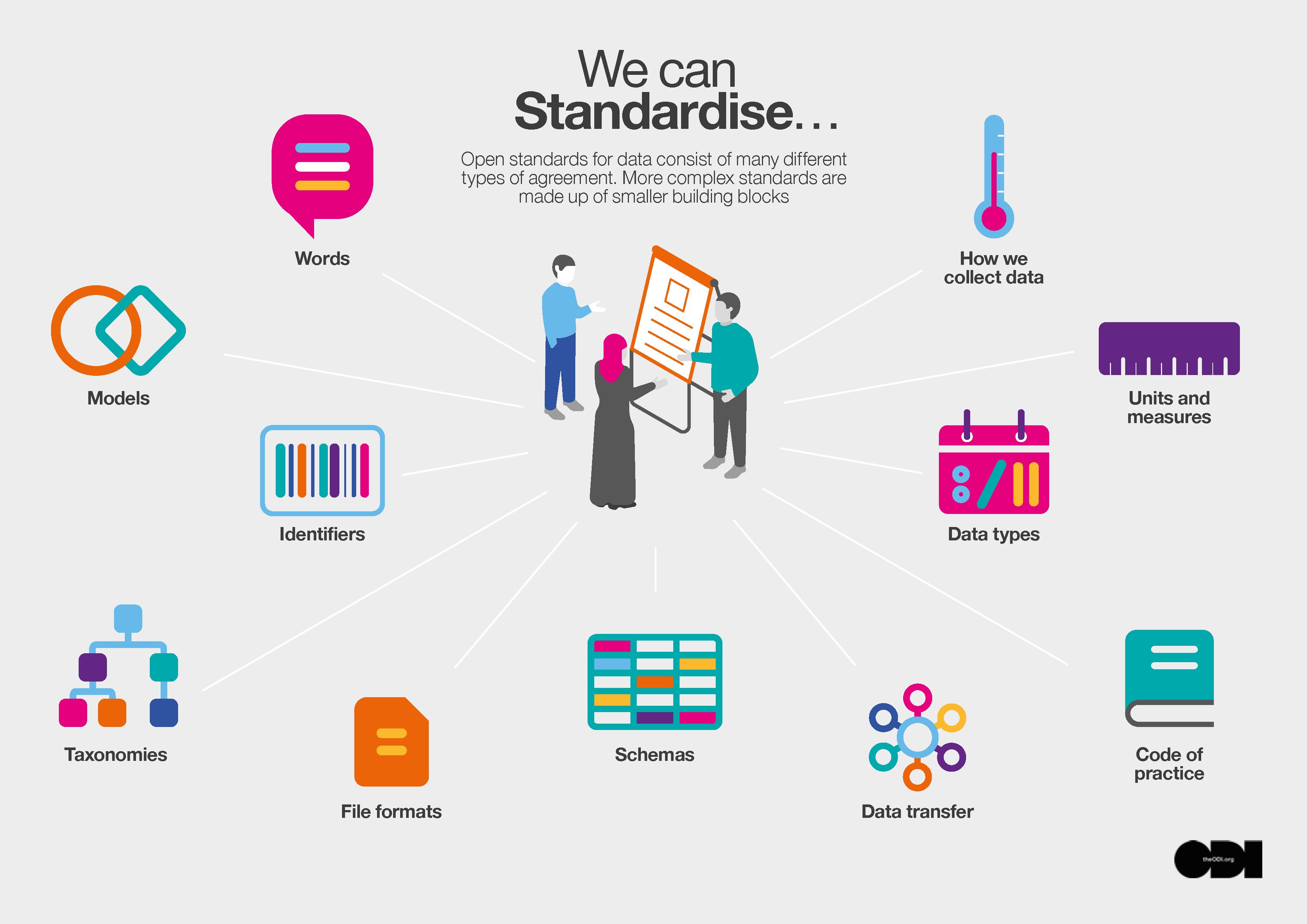
Standards help us to consistently publish and use data. They are a tool that can help to shape markets, create ecosystems and implement policy. Our new guidebook helps you to find, adopt and create open standards for data
By Leigh Dodds
Open standards are an important part of our local, national and global data infrastructure.
Standards help us to consistently publish and use data. They are a tool that can also help to change markets, create open ecosystems and implement policy objectives.
Over the last seven months, we have been exploring ways to make it easier for organisations to find and adopt existing standards and, where necessary, to create new standards that will create impact through wider adoption.
We began by exploring existing approaches to creating open standards and the types of impact they create.
Through our desk research, we identified that standards are created in many different ways and can create a variety of technical, social, economic and policy impacts. Our user research highlighted that despite this, it is often difficult to demonstrate the importance of standards and the benefits of working in the open. This makes it harder to convince organisations and communities to engage in the work required to create high quality, sustainable standards.
We also brought together a group of organisations – OpenNorth, OpenDataServices, Porism and the W3C – experienced with working on a variety of standards to support them in documenting their tools, processes and experiences.
We’ve learnt a great deal from each of them. And they’ve also told us that working as part of a peer network has been a useful way for them to share experience and best practices.
We’ve taken everything we’ve learned during the project and used it to develop new guidance and tools that we hope will help to address some of the user needs we identified.

We’re very pleased to launch the open standards for data guidebook.
The guidebook provides:
- a general introduction to open standards for data, the different types of standard and why they are important
- insight into how standards can be used as a tool to create impact
- support to help data publishers and users find existing standards
- advice to help guide and inform the creation of new standards
- insight and pointers from the wider standards community, including a short series of podcasts
The guidebook is intended to be a jumping off point that will signpost to other resources created by the wider community. We plan to continue to develop the content through our own work on standards and encourage contributions from the community.
If you have feedback on the guidebook then you can leave feedback via the website or contact us at [email protected].
We’d like to thank everyone who has participated in the project over the last few months, including not just the project team, but all those who gave up time to be interviewed, to attend workshops, participate in user testing and reviewing draft content.